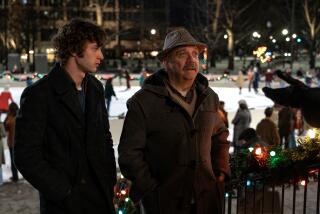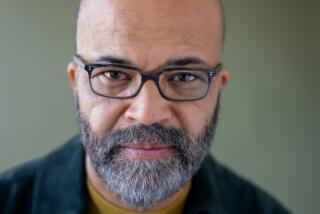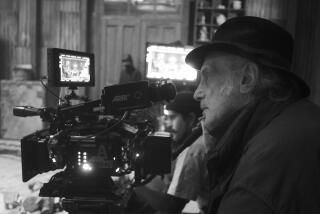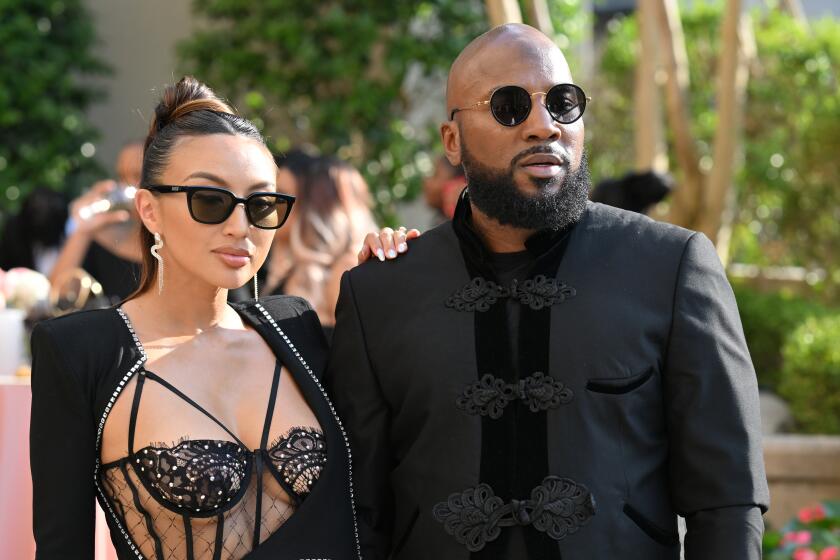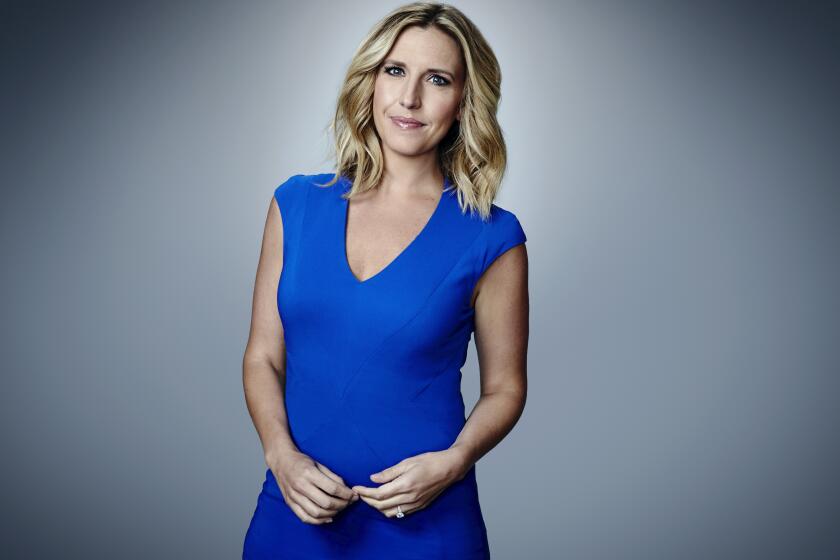Leonardo DiCaprio investigates J. Edgar Hoover in ‘J. Edgar’
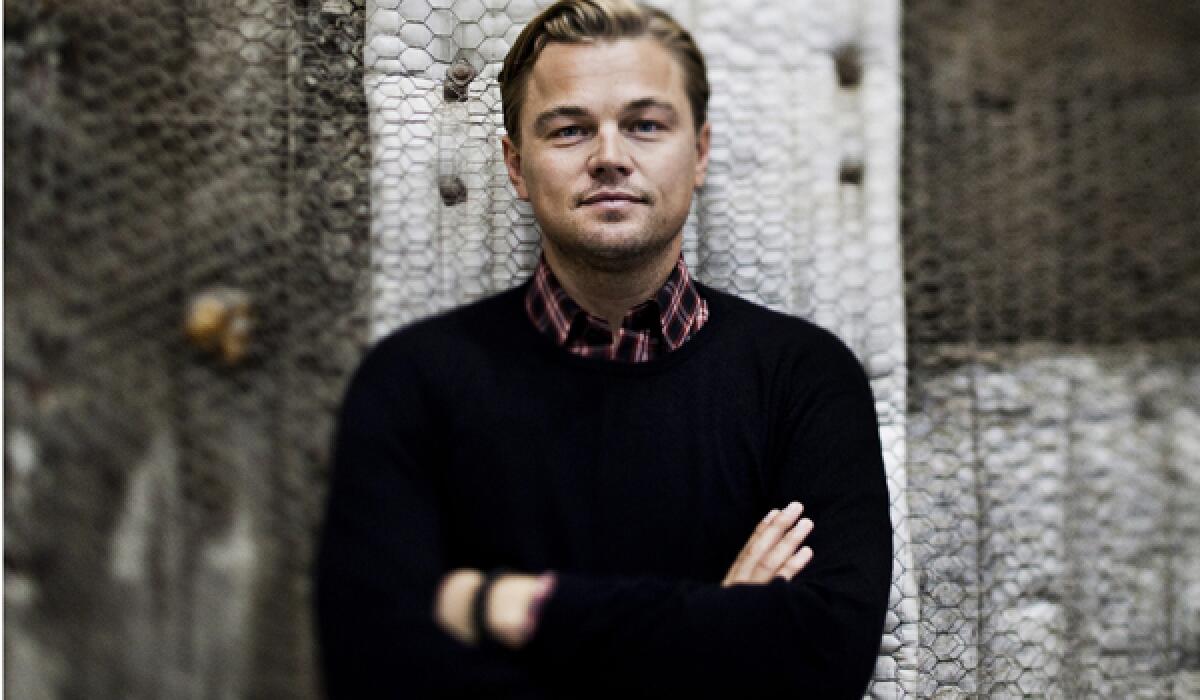
For Leonardo DiCaprio, any story worth telling starts with a question.
“Why?” the actor said, banging his fist on a table. “His personal life, his tactics, what drove him, what were his motives? What the hell did he really want?”
The man instigating this particular “why” is J. Edgar Hoover, whom DiCaprio plays in the new biopic of the controversial FBI chief directed by Clint Eastwood. But the star of “J. Edgar” could as easily be asking about the other complex characters he has brought to the screen in the last decade — obsessive magnate Howard Hughes in “The Aviator,” mysterious U.S. Marshal Teddy Daniels in “Shutter Island,” grieving dream hijacker Dom Cobb in “Inception.”
“Do I have to feel empathy [for the character]? No, I don’t,” DiCaprio said. “Not really. We can all understand the need and desire to be loved. Public adoration and stature was his outlet for that. But he was dogged, bullheaded and completely unsympathetic to a very important time in our country where we were going through some major transformation. He stayed in power way too long and took his tactics way too far. I don’t like the man, no.”
But a dislike doesn’t discount a desire to portray a character, he said. “I really just gravitate towards roles that I want to learn more about. Whenever I get a screenplay, if it leads to more questions and intrigue … if there’s a mystery to the person, that’s when I get more involved. Unanswered questions force you as an actor to say, ‘OK, this is what I’m choosing.’”
At 37, DiCaprio still carries himself with a boyishness that makes it easy to forget that he has been a steadily working actor for more than 20 years. No one seems surprised by the constancy of his employment in Hollywood except perhaps the star himself.
“Every career is fleeting,” DiCaprio said, in a late October interview on a Warner Bros. soundstage, having just flown to L.A. from the Australian set of Baz Luhrmann’s “The Great Gatsby,” in which he also plays the title role. “There are times when your career is hot and people want to see your work, and there’s other times when people lose interest. But while I’m in the very fortunate position of being able to choose what I want to do, I’m gonna do that. I don’t second-guess what I’m attracted to.”
In “J. Edgar,” from a script by “Milk” screenwriter Dustin Lance Black, DiCaprio ages some five decades, playing Hoover from his early days as a bookish young lawman to the height of his influence as an FBI director with the power to intimidate presidents. The movie explores Hoover’s close ties and possible lifelong affair with his colleague Clyde Tolson (Armie Hammer) and his solicitous relationship with his fearsome mother (Judi Dench).
“Hoover’s whole life was basically trying to extract secrets from other people and repress secrets about his own life,” DiCaprio said. “He was so incredibly concerned with his image and the image of the bureau. He would fervently attack people who questioned his sexuality.”
When DiCaprio was cast, he traveled to Washington, D.C., to research Hoover’s life and meet with those who knew him.
“For me, it was about finding out what his sense of humor was like, how he held his hands, what he would eat,” DiCaprio said. “The way people would conduct themselves around him, how he spoke to others. Within his voice I had to attempt to carry with me 50 years of experience when I’m talking to a young Kennedy, like, ‘You young whippersnapper, back in my day … !’ To understand the command Hoover had with everyone around him, that they all called him ‘boss,’ that they looked up to him, this fear that he instilled in everyone. That’s what I tried to capture and understand.”
Capturing the character for the “old Hoover” scenes meant spending six hours in a makeup chair having wrinkles and liver spots applied.
“There were moments where I was wanting to rip my face off,” DiCaprio said. “You just have so much more weight on you. There was an incredible amount of claustrophobia. And you have to keep the nuances of what you did before with the younger Hoover.”
While describing the “J. Edgar” set, DiCaprio launches into a spot-on impression of Eastwood, gravel-voiced and leaning on the director’s chair.
“It’s kind of like a ring man,” DiCaprio said, comparing Eastwood as a director to a boxing trainer. “He builds up your confidence. He starts saying things to you about ‘that bastard’ and ‘what he did to you.’ It was about stoking my fire, getting me angrier as a character. It’s never, ‘Say this line this way’ or ‘turn your face this way.’ He never likes to manipulate actors. He likes you to trust your instincts, be on your toes. He thinks if things are manipulated too much, it becomes phony.”
A minute later, in a riff on Eastwood’s style versus director Stanley Kubrick’s, DiCaprio is impersonating Jack Nicholson playfully bouncing from character to character.
But he is also able to focus on demand, said costar Dench.
“If somebody says to you, ‘You weren’t at all like yourself,’ that’s the greatest compliment you can pay an actor,” said Dench of DiCaprio. “If you get to play a monster or a really unpleasant person, ooooh, lovely. [DiCaprio’s] concentration is paramount. You kind of feel that he’s got the whole thing in the palm of his hand that he knows exactly how the scene should be played and that he’s totally committed to it.... But then suddenly there’s a wonderful outbreak of relaxation and a laugh and a joke.”
When DiCaprio expressed interest in the role, a typically succinct Eastwood said his reaction was, “That’s a good idea. That’d be great for him. He’s a smart guy. He saw that it was going to be an interesting character, and then we went about it.”
“J. Edgar” is the kind of movie — a $35-million adult drama — that doesn’t get made by a studio today without the help of a bona fide star. DiCaprio, a three-time Oscar nominee, dramatically cut his fee for the part and is the keystone of the studio’s awards season push.
DiCaprio’s first major film role was as a rebellious teen in 1993’s “This Boy’s Life.” “My first movie was with De Niro,” he said. “I was 15 and I said, ‘Oh, my God, he’s not just saying the lines, he’s improvising and he must have thought about this a lot. To see the preparation and the specificity, but also the ability to react to other people, the ability to discover stuff in the moment…”
He went on to make a creative mark in offbeat independent parts — a mentally disabled boy in “What’s Eating Gilbert Grape,” for which he received his first Oscar nod, an athlete addicted to drugs in “The Basketball Diaries.” Since 1997, when he broke hearts and box-office records around the world in “Titanic,” DiCaprio has been in the enviable position of being able to work with top-tier directors like Eastwood, Martin Scorsese, Ridley Scott, Christopher Nolan and Danny Boyle.
With roles in “Gatsby” and Quentin Tarantino’s “Django Unchained” on the way, his career is showing no sign of slowing. And with director James Cameron planning to re-release “Titanic” in 3-D next year, many moviegoers will be reminded of why they fell for him in the first place
Reflecting on how he has grown since making “Titanic” with costar Kate Winslet, DiCaprio said, “Kate and I never expected in a million years that it would be that kind of a success, didn’t know what we were getting ourselves into… It empowered us in a lot of ways; we got to make films and finance them based on our name. Being able to do that with almost any type of movie you want to do is a huge privilege. It’s been a huge gift.”
More to Read
The biggest entertainment stories
Get our big stories about Hollywood, film, television, music, arts, culture and more right in your inbox as soon as they publish.
You may occasionally receive promotional content from the Los Angeles Times.
